Since 1970, the University of Washington has honored its best teachers for striving to bring knowledge to the next generation. This year the UW has given its Distinguished Teaching Award to seven faculty on three campuses. In addition, the UW is honoring TAs, public servants and staff this month. All will be recognized at the UW Recognition Reception, held at 3 p.m. Wednesday, June 9 in Meany Hall and open to the public. Faculty and others will also be honored during the June 12 commencement exercises in Husky Stadium. What follows is a series of mini-profiles of teaching faculty, followed by brief listings of other award winners.
Distinguished Teaching Award
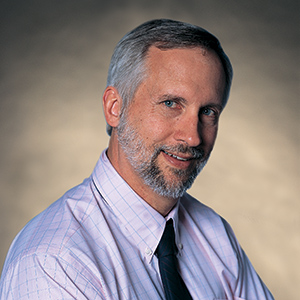 David G. Allen
David G. Allen
Professor, School of Nursing
Professor David G. Allen stepped down as chair of the Department of Psychosocial Nursing in the UW School of Nursing to return to teaching full time for one important reason: he missed teaching and daily contact with students.
Although his career has spanned more than 30 years, Allen remains consumed with the idea that faculty are held accountable to what students are taught and how learning takes place.
“My teaching, in all its fascinating aspects, is the core of my life here,” Allen says.
Known school-wide as a terrific classroom teacher, Allen devotes much of his classroom time to imaginative exercises in group learning and active participation. For instance, when he teaches his “White Privilege and Racism in Health and Human Services” course, he talks about his own privilege as a white male professor to deconstruct the idea of privilege and make room for difference in the classroom.
A master of articulating and clarifying difficult ideas, Allen offers many hours of individual instruction, provides students with consistent support, works extensively to improve their writing, and even hosts dinner parties for students and their families to celebrate the completion of their degrees.
“He teaches me in our interactions to respect and value my knowledge and abilities,” says Doris Boutain, ’00, a former student of Allen’s who is now on the faculty of the Seattle University’s College of Nursing. “He freely shares his insights, his feelings and his challenges as a professor with me. His enduring commitment to me is just plain awesome – and does not end with my career pursuits.”
Allen has created other courses, such as “Who Am I? Difference and Identity” that are so popular they draw students from such majors as social work, education, women studies, communication and anthropology. He also created “Autobiography” and “Frame of Reference” assignments for graduate nursing students as a way to “wade into territory that is new, perplexing and potentially divisive,” says Debbie Ward, associate professor and vice chair of psychosocial and community health nursing.
Allen is “unusual in that he is not only an inspiring and excellent teacher who draws students from all over the University,” adds Carole Schroeder, associate professor of nursing at the UW, “but also a caring and committed educational activist.
“For the past 10 years, I have advised graduate students to take anything Dr. Allen teaches, and students have never been disappointed,” Schroeder says. “Highly challenged, maybe, forced to think in highly unusual and critical ways, but always stimulated and changed by the experience.”
Allen also maintains a steady commitment to collaboration with the women studies department, where he has an adjunct appointment. He is also affiliated with the College of Education, where he teaches and is active in that school’s multicultural education group.
Allen, who serves on the nursing school’s curriculum transformation board, chairs the departmental diversity task force and helps recruit minority students, loves most of all to bond with his students. “I rarely invite anyone in to guest lecture and even-perhaps too rarely-use media,” he explains. “Students’ time with me is too precious. A sure sign to myself that my priorities have gotten out of whack is if I experience class time or an appointment as a burden. Sharing their lives is priceless.”
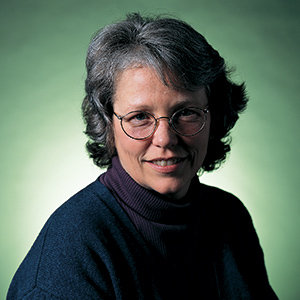 Ann Baker
Ann Baker
Senior Lecturer, Department of Philosophy
If you sign up for one of Ann Baker’s philosophy classes, be prepared to be prodded and pumped for information, even in her popular, 200-student Introduction to Philosophy class, half of which is comprised of freshmen.
What is Baker’s trick?
“I walk around a lot,” says the senior lecturer in the Department of Philosophy. “It’s a big lecture hall and I have a wireless mike. I make eye contact, and I talk to them. Especially if they’re kind of dull one day, I’ll look around and ask them ‘What’s up?’ ”
On a day like this, with students quiet, Baker will ask creative questions, relating the course material to everyday life and will explain elementary ideas in a simple way, often drawing diagrams to help visual learners grasp the information.
She realizes, too, that the best way to be a good teacher is to be to a good student, and continually asks her students and peers how she can improve; one faculty member says, “She is always grading herself.”
The payoff of Baker’s effort is significant. “I have not seen any other lecture class of that size in which such a large percentage of students actively, spontaneously participate,” says Joan Graham, a colleague and director of the Interdisciplinary Writer Program.
It’s obvious that Baker has a love for teaching that goes beyond her love for philosophy. She stresses that making personal connections with students, even via e-mail, is a passion. She likes undergrads for their idealism and optimism and graduate students for their depth and willingness to test open-ended questions.
“The thing that I am most proud of is students who leave who contact me later when they do something they are proud of,” Baker says. “That’s something I didn’t expect when I came here.”
Baker’s “vigorous interaction” with students is coupled with “rigorous analysis” to prompt new ways of thinking, Graham has observed.
One example is her presentation and examination of philosophical distinctions, such as the paradox of Hedonism, the distinction between ethical egoism and psychological egoism, and the difference of a motive’s being selfish and a motive’s being one’s own.
Her also work includes teaching a philosophy department teaching seminar for graduate students twice a year and teaching “Personal Values in Human Good.” The latter examines what constitutes a good life, with students developing their own conceptions. They study philosophers from Aristotle to NYU Professor Thomas Nagel, who writes about death and the absurd.
Her teaching method and her interest in students has won her a legion of fans, and has had some colleagues comment that they are shocked at the number of students coming in and out of her office to ask for advice or discuss class material; she is even popular with those who are non-majors.
“She is charismatic, but it isn’t charisma that brings them,” says Graham. “They want to learn, and they know she will find ways to answer their questions.”
When she first stepped on the UW campus, Baker feared that she would not be able to connect with students on such personal level.
Her first teaching job after getting her Ph.D. at UW was at a small liberal arts college in Illinois, where it was easy to know all her students. Four years later, she returned to UW as senior lecturer. “I thought that I’d have to give up that personal connection,” she says, “but here at UW I do have that.”
Uncomfortable with the acclaim of winning a Distinguished Teaching Award, Baker is nevertheless happy about being honored. “I’m delighted! I’m really proud of it because teaching is where I spend the bulk of my professional energies,” she says. “It’s being recognized for the thing that I care the most deeply about.”
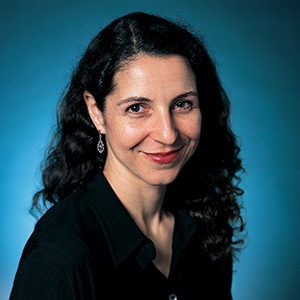 Elizabeth Cooper
Elizabeth Cooper
Director, Dance Program
When students take “Betsy” Cooper’s dance classes, they’d better bring a pen as well as their ballet shoes. Cooper, director of the UW Dance Program, is known for being an innovator in dance education – including starting the first writing lab for dance majors in the nation.
Versatile and patient, she has a teaching style that one of her students calls “a breath of fresh air.”
She is a dance historian who clearly enjoys teaching majors how to research, rewrite and clarify their thoughts in formal papers-something not typical of a dance curriculum. She also spends a large chunk of time teaching the basic mechanics of writing and research methods.
“It’s something I care about a lot,” she says. “You see some students who are so ready to write a discipline-specific paper.”
“We were challenged to be more thorough and articulate than we ever imagined possible,” says Kelly Knox, ’03, who since having her as a teacher has become one her self at Bucknell University.
Cooper’s writing class exemplifies her commitment to new methods of teaching ballet and modern dance. In fact, Cooper is known to have never taught the same class the same way.
She also is innovative in her style of teaching. When students have a hard time attaining perfection in a movement, such as an “impossible adagio,” which requires excessive control, but also grace, Cooper positively encourages them, expressing her love for the art form. She is unlike many dance trainers who use humiliation and degradation to push students, Knox says.
She makes students feel confident and comfortable and has prompted many to explore the dance artistry. She even helped one student become a 2003 Mary Gates Scholar.
“Without her support and trust in my capacity as a leader, I surely would not have the honor of being a Mary Gates Scholar this year,” says UW student Michael Helland. “Betsy provides the impetus for so many things, but she still leaves it up to the students to discover personal success on their own merits.”
Cooper extends herself beyond dance instruction, as well. She spends a lot of time mentoring students . “I work with majors and non-majors and wonderful graduate students who are professional dancers,” says Cooper.
She also works to improve student-faculty relations and maintain the standards of the prestigious department, specializing in graduate seminars, research methods and dance administration instruction.
Through her teaching, mentoring and other efforts, Cooper has inspired those in the dance community to have a passion for dance which stretches beyond physical goals. For instance, she is a great enthusiast for dance culture and the history of dance, which includes examining dance’s role in cultural evolutions.
Her seemingly effortless approach in teaching dance, and ballet in particular, stems from a lifelong devotion, in which ,at one time, she trained at the School of American Ballet in New York City
“I’ve danced my whole life. When I look back to the things I enjoy most, I had a passion for it.”
Cooper’s passion for dance deepens as she gets older, and she says that although she could endlessly talk about the techniques and mechanics of dance, “at the end of the day, it’s about expressing something, being an artist.”
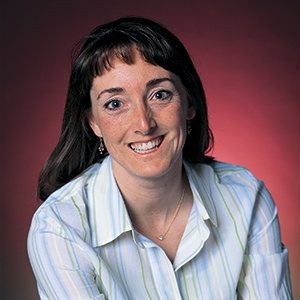 Teresa Evans-Campbell
Teresa Evans-Campbell
Assistant Professor, School of Social Work
Once a high school dropout, Tessa Evans-Campbell is amazed at her transformation into an assistant professor in the UW School of Social Work.
“Growing up, I never even thought that I would go on. I was a high school dropout. But I had mentors. All along the way, someone has mentored me,” says the Seattle native and member of the Snohomish Tribe.
Raised by her mother and grandparents, tribal ties kept her grounded. She says her grandfather was “a good encourager,” even though she’s uncertain whether he finished the eighth grade. “He didn’t know if you could trust education, but he wanted it for me,” she says.
The encouragement paid off. “I had to make up a few classes to get my high school equivalency, so I went to Seattle Central, which had a program in the 1980s,” says Evans-Campbell. “If you got your A.A. you also got your high school equivalency.”
Then she transferred to the UW, where she earned a bachelor’s in art history in 1989, while volunteering at a crisis clinic and serving on her tribal council. Her next steps took her to UCLA, where she earned her master’s and doctorate while working as children’s social worker.
As soon as she arrived at the UW in 2000, the school knew it had a star teacher on its faculty.
Mentoring and sharing her own stories with students, as well as teaching classes such as the master’s-level “Community Practice with Native American Communities,” Evans-Campbell has helped to bring Native-American perspectives and students to the forefront of the school’s curriculum, notes Associate Dean for Academic Affairs Margaret Spearmon. Evans-Campbell was instrumental in strengthening Native American student recruitment .
Like those who mentored her in her years as a student, Evans-Campbell is proud to give back by mentoring and encouraging students from underrepresented populations- “students,” she says, “who have the spark but who need the extra support.” She also appreciates the mentoring and teaching process because she believes that learning is an interaction- she learns from them just as they learn from her.
She teaches both hands-on courses and theoretical subjects, such as “Historical Trauma.”
“Social work,” she says, “is about taking ideas, grappling with them, then taking them out into the world and practicing them. ”
She thrives on using experiential classroom work, including presentations and role-playing, all with an open-minded approach that is a constant process of developing and changing ideas.
Her course, “Historical Trauma,” for example, covers community-level disasters, such as massacres, relocation and “re-education,” that continue to affect descendants of those who suffered. The effects of “cumulative intergenerational traumas” are on-going, and students are prompted to explore the implications in the past and present.
“Historical Trauma” also covers healing from such atrocities. Based on the Jewish Holocaust model of trauma, her class also embraces the African-American experience and other cultural traumas. “We’re not just talking about Native-American communities,” she adds.
Teaching at her alma mater is a special thrill for her. “I’m from here and always knew I wanted to come back,” she says. “I definitely wanted to come back and raise my kids here. The UW has nice ties with native communities.”
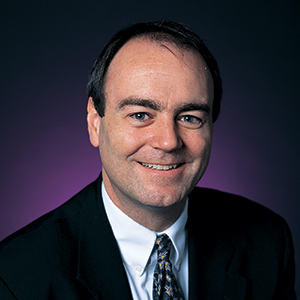 Stephen Hanson
Stephen Hanson
Professor, Department of Political Science, Jackson School of International Studies
While it’s true that some undergraduates take introductory courses just to earn credits toward their degree requirements, if they take Political Science Professor Stephen Hanson’s courses, they are in for a shock.
“He has the uncanny knack of making students really care about politics and want to learn more,” says Political Science Chair Stephen Majeski. “It is because of teachers like Steve that our department attracts so many students and keeps them as majors.”
Hanson, who is the Boeing International Professor in Political Science and the director of Russian, East European and Central Asian Studies in the Jackson School, often gets the highest student evaluation scores in the entire College of Arts and Sciences.
Majeski says these ratings are “unbelievable” for such huge introductory courses. Hanson teaches both Introduction to Politics and Introduction to Comparative Politics-each drawing about 300 freshmen and sophomores.
The political science professor makes a connection from the moment his students enter the lecture hall. “What struck me on the first day of class was his contagious enthusiasm for the course and his vivid humor,” says UW student Candice Faber. “I had to arrive early for a seat near the front.”
Adds another former student, Jen Howk, he “transformed one of the most impersonal, alienating rites of passage in the university experience-the introductory lecture course-into something that directly engaged and challenged every student in a uniquely meaningful way.”
“How did he do it?” asks Political Science Professor Jamie Mayerfield, who audited one of his large lecture courses. “By building each lecture around two or three carefully formulated theoretical ideas, and the illustrating those ideas with a wealth of illuminating, unforgettable and frequently hilarious examples. He did all this with verve, humor and imagination (and nary a glance at lecture notes).”
His method is not a one-way process. “My students take positions on important political debates, which includes writing always and class discussion from the first level right up to graduate school,” Hanson says. “No one can solve these problems unless individuals take a stand. Who else is going to solve them if not well-educated students from UW?”
But Hanson is not just renowned for teaching introductory courses. As director of Russian and East European studies, he introduced a new system of faculty mentoring that matches incoming students with professors who have similar interests. And his teaching in upper-level courses and graduate seminars has left its mark across the academy.
A specialist on the Soviet Union and post-Communist Russia, Hanson has mentored many future political science professors. “Sitting in Steve’s Soviet Politics seminar, grappling with Lenin’s quandary of how to be true to Marx in an unanticipated political context, I fell in love with the discipline,” says Lewis and Clark College Professor Cecilia Chessa, ’93, ’98.
Current events are always part of Hanson’s recipe for engaging his students. “We live in a time of heightened partisanship, so students find it difficult to find their own voice when confronting the complexities of modern politics,” says Hanson.
“I am convinced,” he says, “that students today need to understand the entire world of contemporary world affairs. “We live in an era of globalization. I came here at the end of the Cold War and I’ve been witnessing the world change rapidly every year.”
A graduate of Harvard and Cal-Berkeley, Hanson has been teaching at the UW since 1991. While also a leading researcher and scholar, the teaching award is particularly meaningful. “I’m thrilled, ” he says. “I’ve always considered myself a teacher. It’s an important part of my identity.”
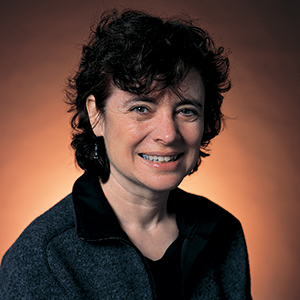 Beth Kalikoff
Beth Kalikoff
Assistant Professor, Interdisciplinary Arts and Sciences, UW Tacoma
For Beth Kalikoff, teaching transcends the present.
In any 10-week quarter, students will learn volumes from their professor. It’s what they take with them after the term, however, that can really change their lives, Kalikoff says.
“I’m interested in what happens after the class is over,” Kalikoff says. “I want students to learn things that will have meaning after they graduate.”
Kalikoff, an assistant professor who teaches writing in UW Tacoma’s Interdisciplinary Arts and Sciences program, says she designs her teaching to improve students’ abilities as writers and scholars and enhance their abilities to become informed, engaged citizens.
“My courses support active and lifelong learning,” she says. “The courses support the development of a student’s abilities as well as the products of those abilities.”
A faculty colleague wrote that Kalikoff exemplifies the spirit of the Distinguished Teaching Award.
“Kalikoff is truly brilliant in front of a class. She has a sparkling and engaging personality and she spreads her enthusiasm for literature and writing like a contagion,” the colleague wrote.
Kalikoff has been a senior lecturer at UWT since 1998, teaching courses in argument, writing and American studies. Previously, she was an associate professor at the University of Puget Sound and assistant professor at Eastern Illinois University. She holds a Ph.D. and M.A. in English from Indiana University and a B.A. in English from Johns Hopkins University.
Before she began teaching full time at UWT, Kalikoff developed UWT’s first campus-wide writing center and recruited and taught about 40 peer consultants who offered hundreds of undergraduate and graduate in-class presentations on writing.
Kalikoff was named an assistant professor just this year. She focuses her service on teaching and learning and frequently sponsors faculty development workshops for colleagues. In addition, she is well-known for her efforts to create “linked” courses with other disciplines. With Professor Kima Cargill, she is currently studying the effects of linking courses across disciplines on students’ grades.
Kalikoff says that each course she teaches develops uniquely as students react to her leadership.
“I relish the noisy and sometimes untidy learning opportunities that teaching provides,” she says. “Every group of students changes your teaching.”
Many UWT students are older and more experienced than traditional college students, Kalikoff says.
“Most UWT students have jumped a lot of hurdles to get here,” she says. “They’re determined to get as much out of their education as they can, and they’re not shy about telling me how I can help them do that.”
“Rather than rehashing the same material year after year, she transforms herself and has become a ‘master teacher,’ ” one faculty member says. “I have never known a teacher who can equal Professor Kalikoff in her capacity to inspire excellence in her students.”
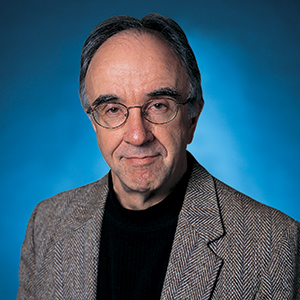 Alan Wood
Alan Wood
Professor, Interdisciplinary Arts and Sciences, UW Bothell
Alan Wood, ’76, ’81, teaches classes on big topics, such as his new course, History and Globalization. But the secret to the UW Bothell professor’s success is that he makes his classes feel like a tightly knit community to deal with issues on a grand scale.
He takes the time to meet individually with every student in his classes for 10 minutes in his office at the beginning of each quarter to get to know them as individuals.
Wood also keeps connected to his students by not focusing on narrowly defined subjects, as many academics do. Instead, he bridges the gap between the scholarly world of the professor and the practical world of the general public. The result: his courses tackle real-world issues that his students can get their arms around: business, health care, education, terrorism, disease, migration, population and other subjects from a global perspective.
“His class not only stretched my thinking,” one student says, “it provided context and a framework to consider local, regional and global events.”
Over the course of his 20-year teaching career, Wood has completely reinvented himself as a teacher. He decided to broaden his boundaries beyond his original training in traditional Chinese political thought. By doing so, he resolved to write and teach about the most fundamental problems facing the modern world. That resulted in him designing even his world history courses to bring the broadest possible perspective of human experience to bear on contemporary issues.
“Dr. Wood brings in higher education what is lacking-listening,” recalls a student of his who came from Africa. “In listening to stories of those so seemingly different from us, we find similar but unexpressed voices inside ourselves. Hearing one another’s stories is the beginning of new understanding and the foundation that inspires excellence in the achievements of all students.”
Wood believes that dealing with students on a personal level is the way to get people to think critically and analyze the world around them.
“What fascinates me, and therefore makes its way into all my classes, is the question of what exactly it means to be human,” he says. “If the human race is to have any hope of overcoming the twin challenges of the modern world-war caused by nationalism and environmental degradation caused by pollution-we must learn to accept responsibility not only for our own individual nations, but for the world as a whole.”
Wood, one of the original faculty members at UW Bothell, maintains an open-door policy to help students with their writing, thinking and speaking skills. But he does far more. The student from Africa, who came to UW Bothell after experiencing “a lot of injustices,” is now a second-year law student, thanks to Wood’s encouragement.
“Getting to know students, hearing their stories, thinking through the great issues of our day together, is so much fun I sometimes marvel at how I contrived actually to be paid for doing this job,” Wood says. “It’s almost too good to be true.”
Excellence in Teaching Awards
Recognizes outstanding educators who are teaching assistants
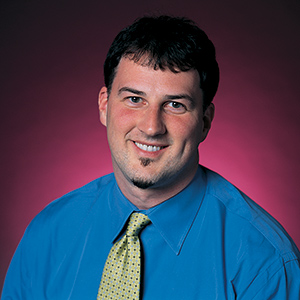 Lance Rhoades
Lance Rhoades
DEPARTMENT: Comparative Literature
COURSES TAUGHT: Writing in Comparative Literature; Perspectives on Film; Introduction to Comparative Literature: Forms, Genres and History; Theory of Film
ACHIEVEMENTS: Rhoades is deeply committed to his own peers and his students, as he is readily available to mentor others outside of the classroom. He helped a student define his academic goals and determine a preferred study-abroad program; he encouraged anxious teaching assistants to sit in on his sections and watch the way he worked through the course material. When a professor became ill and had to leave his position teaching gifted high-school seniors on fiction and film at a summer institute, Rhoades took up the position and has agreed to work there again this summer. In class, Rhoades aims to be creative, depicting new perspectives on old material. He has even developed a new way of teaching Comparative Literature—instead of studying literature from Greek or Roman empires, his students learned about cannibalism and its use in literature. He is also the driving force behind The Filmmaker’s Collective, where students discuss and produce films, as well as a film forum, which allows students to view and discuss films that are rarely seen outside of a university setting.
QUOTE: “Lance Rhoades possesses the gift common only to the best of teachers. This gift he combines with a dedication of labor and commitment to his students, the effects of which are easily discerned in daily interactions. I am duly impressed with his ability to blend poise, confidence and smart ideas with friendly student-teacher interaction.” —Comparative Literature Professor Jennifer Bean
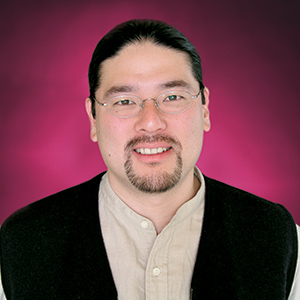 Britt Yamamoto
Britt Yamamoto
DEPARTMENT: Geography
COURSES TAUGHT: Critical Engagements with Service and Community: Working in Civil Society; Special Studies in Community-Based Learning; Special Studies in Community-Based Fieldwork
ACHIEVEMENTS: Yamamoto, as a doctoral candidate in geography, developed the innovative course Critical Engagements with Service and Community. The course’s objective was to help students understand their own convictions and motivations for “doing good work,” and asked them, “What constitutes good work?” Through service learning, Yamamoto encouraged students to analyze larger social issues and strengthen the connection between the UW community and the world. Yamamoto involved his students with creative, in-class exercises and explained complex issues in an uncomplicated way, while prompting the students to analyze themselves and find their own passions.
QUOTE:”Britt brings his considerable intelligence, maturity and broad perspectives to bear on teaching issues. His habits of mind are the very best attributes we hope for in faculty and other professionals of the coming generation.” —Acting Graduate School Dean Elizabeth Feetham
Marsha L. Landolt Distinguished Graduate Mentor Award
Recognizes an outstanding faculty member who advises graduate students
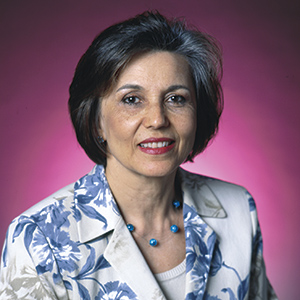 Raimonda Modiano
Raimonda Modiano
DEPARTMENT: English and Comparative Literature; 31 years at UW
COURSES TAUGHT: Textual Theory and the Arts; British and Romantic Poetry; Theories of Gift and Sacrifice and Romantic Aesthetics
ACHIEVEMENTS: Modiano, along with Miceal Vaughan, launched the Textual Studies graduate program at UW. The new discipline focuses on the production, editing, dissemination, preservation and transmission of texts of all forms—oral, written, printed and electronic. Modiano’s students discuss topics ranging from the study of alphabets to the techniques of manuscript preservation to the technology of papyrus production. Modiano has chaired 12 doctoral committees and served on more than 30. She inspired a Fulbright visiting scholar to initiate a textual studies program in the student’s home university and regularly opens her home to her students and their partners. She won the UW Distinguished Teaching Award in 1994.
QUOTE: “While she is a brilliant, internationally known scholar, in the classroom, her sensitivity, professionalism and constantly encouraging demeanor makes students of all experience levels feel welcome to take part in an intellectually exciting and challenging enterprise.” —Student Mark D. Larabee
S. Sterling Munro Public Service Faculty Award
Recognizes a faculty member who encourages community-based instruction
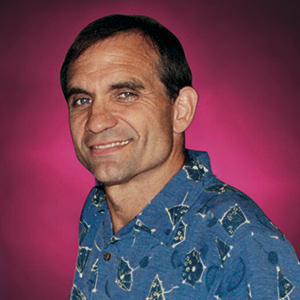 James Clowes
James Clowes
DEPARTMENT: Comparative History of Ideas and Jackson School of International Studies; 13 years at UW
COURSES TAUGHT: The Question of Human Nature; The Idea of the University: Ways of Learning, Exploring and Knowing
ACHIEVEMENTS: Jim Clowes, who died on March 1, touched the lives of teachers, students and community members at the UW, in Seattle and in international countries. Early in his UW career, Clowes launched new study-abroad programs, acting on his vision of sending students beyond Europe. He created programs with a service-learning agenda in Northern Ireland, South Africa and Cyprus to prompt students’ awareness and discussion of the clash of identities, which had been a central theme in each location. When a Husky football player studied in Cape Town, South Africa, it inspired him to be where he is today—running a non-profit that helps kids in South Africa. Clowes not only encouraged students to question the perceptions, attitudes and notions of self and others in international countries, but also in the Seattle community. He created The Bridging Program, which linked the University with the broader community through service learning opportunities such as tutoring at Seattle high schools, stimulating creativity through art and theater organizations or volunteering with social service groups.
QUOTE: “Jim has been a gift to the UW; he is sort of a modern day Santa Claus-he has a merry laugh, a warm heart, he drinks coffee with cream and sugar, and gives gifts of passion, inspiration and education to people of all walks of life.” —Student Monika Jones
Outstanding Public Service Award
Recognizes a faculty or staff member rendering exceptional public service
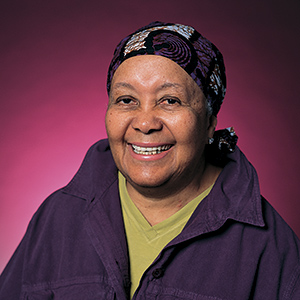 Millie Russell
Millie Russell
DEPARTMENT: Office of Minority Affairs, Assistant to the Vice President; 30 years at UW
ACHIEVEMENTS: Providing support to groups and organizations locally, nationally and internationally, Russell has acted as a mentor, adviser, role model and teacher to those old and young. Her areas of interest range from working with women in the Alpha Kappa Alpha Sorority to youth members of Blacks in Science to the specialists in the Washington State Association of Black Professionals in Health Care. More specifically, at the UW dental school, she organized a minority scholarship, making it possible for one student to complete her courses; the student is now inspired to improve the education, health care and social enhancement of all people. Russell also established an SAT tutorial program in which, after a long day of work, she instructs evening classes to high-school students.
QUOTE: “Dr. Russell has for many years provided always reliable, sustained, creative and energetic leadership. She has facilitated the development of numerous productive partnerships for improved communities, and has nurtured countless individuals.” —Medicine Professor Emeritus Alvin J. Thompson
Distinguished Contributions to Lifelong Learning Award
Recognizes a faculty member rendering exceptional service to continuing education
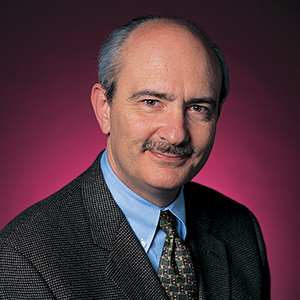 Stephen Kerr
Stephen Kerr
DEPARTMENT: College of Education; 19 years at UW
COURSES TAUGHT: Educational Technology in Schooling, Technology and the Culture of Education
ACHIEVEMENTS: As co-founder of the Center for Research and Development on Distance Learning, Kerr enabled educators and business professionals to receive a professional development certificate while away from campus, using 21st century technologies. He also helped develop the Mathematics-Science Integration and Online Community, which encourages advanced education by providing resources to rural school districts in Eastern Washington. He is currently the associate dean in the College of Education.
QUOTE: “Dr. Kerr’s futuristic vision, ability to open doors of the College of Education to new ideas and partnerships, and willingness to take a chance on innovations while guiding them toward the high quality expected from the University of Washington are the basis of his contributions to lifelong learning.” —Mona Murr Kunselman, UW Educational Outreach
James D. Clowes Award for Advanced Learning Communities
Recognizes faculty or staff member who created or sustained advanced learning communities among students
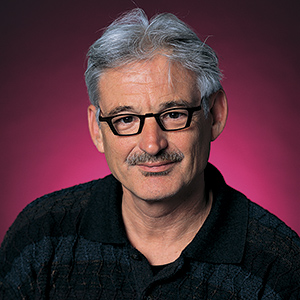 Eugene Edgar
Eugene Edgar
DEPARTMENT: Education; 32 years at UW
COURSES TAUGHT: Exceptional Children; The Purpose of Public Schools in Democracy; Adolescent Development; Crucial Issues in Special Education
ACHIEVEMENTS: In 1987, Edgar developed and taught the first Freshman Interest Group, which brought new undergraduates together to experience the University. He also conceptualized two freshman seminars, Education in a Democracy and Education and the Public Good, motivating students to analyze educational issues essential to democracy. He also assisted the UW Pipeline Project by developing training seminars for tutors and has recently directed 30 college students to a troubled elementary school in Seattle each week to tutor fourth and seventh graders. He also helped the elementary students’ test scores rise by bringing UW faculty to the school to teach the instructors how to prepare the kids for testing.
QUOTE: “Much of the enthusiasm and viability of the groups he creates is owed to Gene’s personal involvement, his exceptional abilities as teacher and mentor, his obvious caring, and, especially, his ability to respect individual distinctions while fostering collective learning.” —Dean of Education Patricia A. Wesley
Distinguished Staff Award
Recognizes outstanding service to the university by its staff
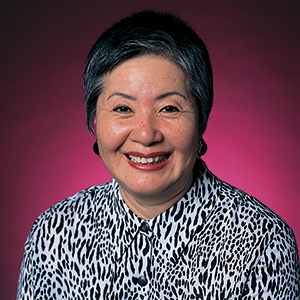 Se Suk Aprille
Se Suk Aprille
DEPARTMENT: Facilities Services, Custodian Services
ON THE JOB: Custodian; 13 years at UW
ACHIEVEMENTS: Aprille is known to “infect” others with her positive energy and strong work ethic. She brightens the fifth-floor atmosphere of Padelford Hall with occasional singing as she shines the floor, cleans and sanitizes restrooms, and stocks supplies. Although she has been battling lymphoma and undergoing chemotherapy since 1998, her enthusiasm and energy levels remain high; she often wipes the rails and elevator button panels as she exits the building. Aprille always asks fellow fifth-floor patrons about their families, and, once a year, she covers the conference table of the Department of American Ethnic Studies with a lunch of homemade Korean dishes. She also recently went out of her way to help a visiting scholar from Korea settle in Seattle.
QUOTE: “Se Suk Aprille is more than a custodian for us here at Padelford Hall. She is like a mother, a loving aunt, a caring older sister, and a trusted friend. Accordingly, she is commanding, bossy, considerate, loving, and supportive, always in the interest of making our place the best place.” —American Ethnic Studies Professor Enrique Bonus
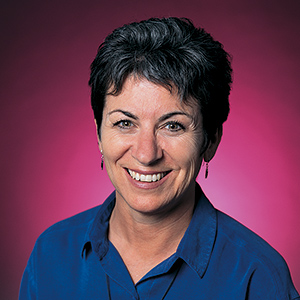 Jackie Matthews
Jackie Matthews
DEPARTMENT: Disability Services Office
ON THE JOB: Sign Language Interpreter Coordinator; eight years at UW
ACHIEVEMENTS: Matthews had an immediate impact when she came to UW. She coordinated sign-language services, set standards for newly employed interpreters, established clear procedures for billing and organized a social lunchtime group for those who are deaf or hard of hearing. She developed a pool of more than 40 sign-language interpreters on all three campuses to help those who are deaf and hard of hearing all over UW—lecture goers, patients at UW Medical Center and even persons with traveling needs. She volunteers as a UW Commencement Marshall and gives vacation time every year to serve as an interpreter at a summer camp for those who are deaf and blind.
QUOTE: “She is both personally and professionally invested in this work and has a genuine desire to improve the understanding of the culture of people who are deaf and hard of hearing. To her, educating others on the deaf and hard of hearing culture is a way of life, which is why she is so good at what she does.” —Cristi Abbe Thielman, UW Disabled Student Services
Stacey McCandlish
DEPARTMENT: UWMC Social Work
ON THE JOB: Professional social worker, serving on the UWMC Liver Transplant Program; nine years at UW
ACHIEVEMENTS: McCandlish’s job is considered one of the most crucial in the entire transplant process, as it requires her to guide patients through the emotional journey of a liver transplant. She is not just a leader for twice-monthly support groups, but a counselor who skips her own break time to take a terminally ill patient out for a walk or bring a dying patient’s beloved pet to the hospital. On weekends, she volunteers to train patients to become members of Team Transplant to raise awareness of organ donation. Last November, she walked with a diabetes patient to ensure he finished race without complications.
QUOTE: “Stacey’s dedication to the patients’ well-being has been tireless. She is a fierce advocate for her patients and their loved ones, can always be counted on to not only call attention to obstacles in the way of the smoothest care process for them, but will devote herself to seeing those changes through to a positive conclusion.” —Linda Sorensen, UW Medical Center
Michael Verchot
DEPARTMENT: Business School
ON THE JOB: Staff Director, Business and Economic Development Program. Earned UW M.B.A. in 1995, worked at UW for nine years.
ACHIEVEMENTS: Verchot developed the Business and Economic Development (BEDP) Program, which provides consulting and business expertise to minority-owned businesses through teams of business students. He also organized no-fee business seminars for minority owners and the first Minority CEO Summit, which focused on increasing the number of minority-owned businesses in the state. The program also promotes student diversity through scholarship support and raises $250,000 annually. Verchot also recently brought former Business School Dean Yash Gupta to meet with tribal leaders, including the Colville Tribal Enterprise Corp.
QUOTE: “Michael is the heart and soul of BEDP. He is the visionary that has taken BEDP from an important but narrowly focused and small program to a broad-based outreach program serving a wide range of constituents throughout the state in a multitude of ways.” —Roland E. (Pete) Dukes, associate dean for undergraduate programs
Alan Weldin
DEPARTMENT: School of Drama
ON THE JOB: Scene Shop Manager; 29 years at UW
ACHIEVEMENTS: For the past three decades, Weldin has been responsible for the scenic backdrop to the 150 yearly performances at the School of Drama. His work ranges from constructing a cantilevered stairway, an elevator and working kitchen to mentoring technical theater students and managing tight production budgets. He provides his students and staff with a hands-on education coupled with real responsibility, allowing each staff member to command his or her own areas. Weldin also helps students and staff find a specific vendor and gives advice on structural analysis and design, a subject he studied at the College of Architecture. He supervises many large projects at a time and has worked as the technical director for ambitious opera performances while simultaneously running the Drama Scene Shop.
QUOTE: “The shows open and the shows close: what remains is an atmosphere which supports the workers and champions the learning process. Alan leads the way by revealing the leadership qualities in others. His lessons and his legacy are carried on through the many who pass through our doors, spend a short time with us, and move on.” —staff of the Drama Scene Shop